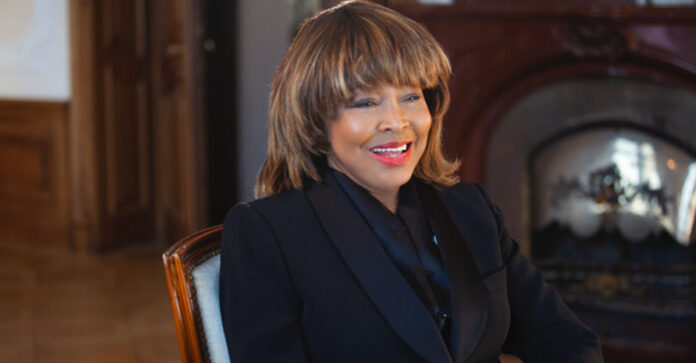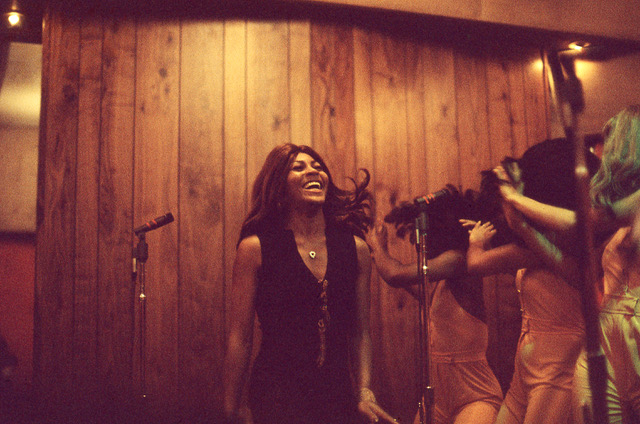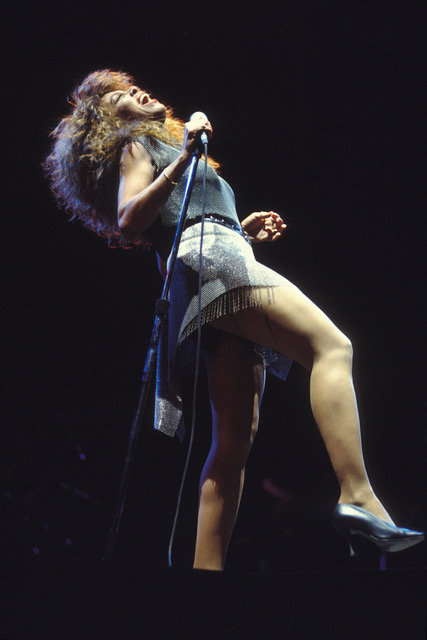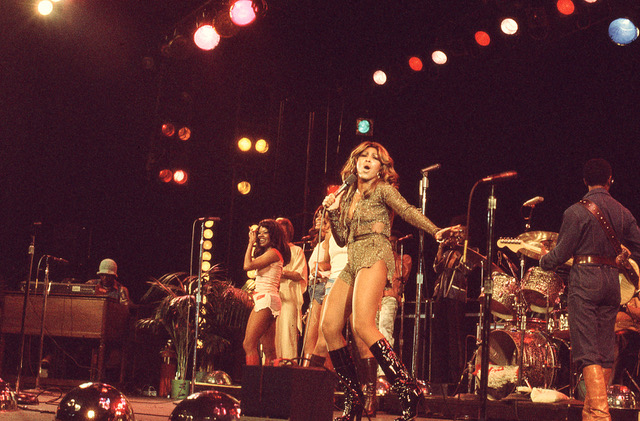
By Dwight Brown, NNPA Newswire Film Critic
She’s like an eternal flame. Can’t remember when she wasn’t around. Can’t imagine life without her. That’s the magic that some music legends can create. They get people to think about them in the past, present and future. The here, now and always.
Tina Turner’s journey into the world of professional music began in 1957 when she, as Anna Mae Bullock, became the star singer with the Ike Turner’s Kings of Rhythm band. The 1960 hit song “A Fool in Love” and a name change to Tina Turner kickstarted her on the road to fame and formed her persona as the “Queen of Rock ‘n’ Roll.” In this fairly comprehensive 118-minute tribute by directors Dan Lindsay and T.J. Martin, Turner, in her own words, describes various pivotal epochs in her life and career. Confessions, revelations, setbacks and breakthroughs.

Tina Turner and Ikettes perform for Bolic Sound KMET Broadcast (May 1973). Photo Credit – Rhonda Graam Courtesy of HBO
Yes, Angela Bassett, Oprah Winfrey, MTV’s Kurt Loder and her manager Roger Davies appear and recollect their interactions too. Rare footage, audio tapes (a pivotal 1981 interview with People magazine), personal photos and new interviews abound. But no one and nothing leaves a stronger impression than the reflective 79-year-old Turner reminiscing and explaining the pitfalls and rewards of her stardom: “The goodness did not balance out the bad.”
Measured, thoughtful and determined to tell her story, she goes back to that fateful time, meeting the brilliant, troubled musician/showman Ike Turner and being enthralled then dismayed: “I was 17-years-old. I was young, naïve.” Once the floodgates open, it all comes back to her. The live shows, recording studios, Ikettes and physical and emotional trauma. Then fleeing her husband, reviving her career, working in nightclubs and dreaming of filling rock stadiums one day. The hardest memories to express are the times with Ike. Though, once the world could see how much she’d suffered and transcended, that scenario became part of her branding, like it or not. A blessing and a curse.

Portrait de la chanteuse américaine Tina Turner en concert en juin 1990 à Versailles, France. (Photo by ARNAL/Gamma-Rapho via Getty Images)
The good part is that music fans and everyday people related to her courageous story. The trouble is that mentioning the bad times retraumatized her. She thought she could abolish that part of her PTSD by revealing it all in her 1986 bestseller I, Tina: My Life Story, co-written with Loder. It had the opposite effect. The bio fueled even more attention towards the nightmarish parts of her life. The 1993 film What’s Love Got to Do With It, which earned Oscar noms and $56M at the box office, continued to hold that same spotlight on her.

LONDON – 1990: Singer Tina Turner performs live on stage at Wembley Stadium. (Photo by Dave Hogan/Getty Images)
In 2019 as she sits in a chateau in Zurich, Switzerland, with her attentive husband Erwin Bach never far away, she displays a calm and wisdom that people reach as they face life’s last chapter. Proud about the Grammys and huge stadium performances, like the 1988 concert at Rio de Janeiro’s ginormous Maracanã soccer stadium for 180,000+ fans. Satisfied with her 1985 performance in Mad Max Beyond Thunderdome, which shows her dexterity as an artist.
Listening to her personal anecdotes and seeing how she has gracefully aged is like sitting at the feet of a great aunt waiting breathlessly for her to retell her life stories. She may tire of the exercise, but her fans will not. And hearing one more time how the denial of love from her mom, dad and Ike made her look for love as a performing artist never gets old.

Tina and Ikettes performing (January 1976). Courtesy of Rhonda Graam HBO
As a life album, the choices in timing, content and emphasis by editors Taryn Gould and Carter Gunn with T.J. Martin are beyond question. Their pacing is so rhythmic two hours+ go by in a flash. The musical score by Danny Bensi and Saunder Jurriaans (The White Tiger) adds the right amount of verve to the playlist of Turner’s hits. Credit cinematographers Dimitri Karakatsanis and Megan Stacey for filming Turner with a regal lighting that makes her look like a queen on a throne. Kudos to directors Lindsay and Martin for showing a certain reverence for their subject. They may not ask the hardest questions or delve into the subject of Ike enough for audiences to figure out why he was so abusive and if he had regrets. Yet, they find ways to get their heroine to open up just enough about her troubles, achievements and her peace of mind.
In-between the memories and testimonies, a parade of songs and extraordinary performances keep the footage vibrant. “Proud Mary,” “River Deep Mountain High” and “Nutbush City Limits.” “Let’s Stay Together,” “Private Dancer,” “We Don’t Need Another Hero.” It’s all on her jukebox. If there is one song/performance that is missing, it’s her obscure but brilliant, moody interpretation of Joni Mitchell’s classic “Edith and the Kingpin.” Her jazzy, earthy rendition is on Herbie Hancock’s 2007 Grammy-winning album “River: The Joni Letters.” Turner’s smokey, raspy voice was made for jazz, though she used it for rock, pop, R&B and soul. Listening to this particular vocal makes you wonder why she didn’t record a jazz album as a fitting coda to a wondrous career.
If Tina Turner needs any further proof that she is truly loved—besides records sales, bestselling books and throngs of concert goers—she will likely get more verification when her fans and curiosity seekers will tune in by the droves to HBO for this retrospective. A touching evocative diary that chronicles Turners’ past and present and cements her legacy.
Visit NNPA Newswire Film Critic Dwight Brown at DwightBrownInk.com and BlackPressUSA.com.


